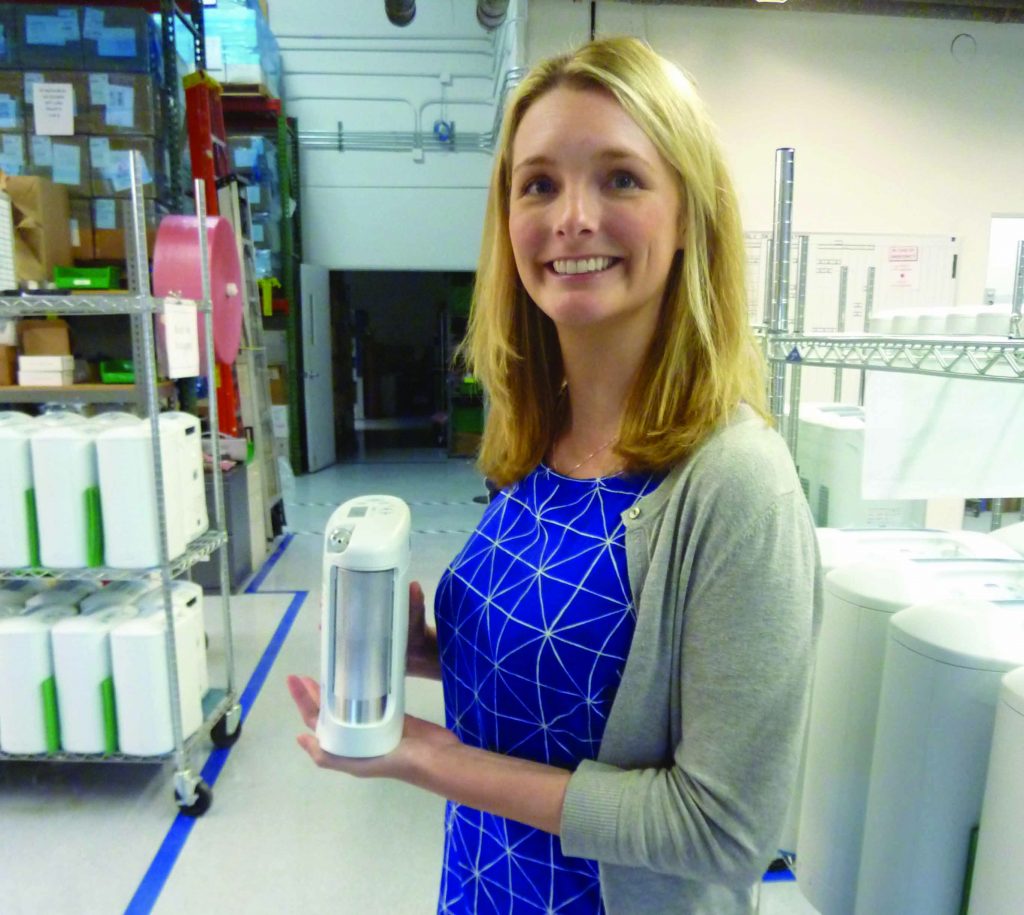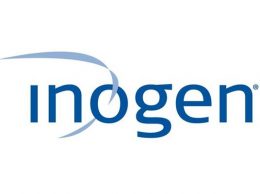Inogen shares plummet after news of supply chain problems
IN THIS ARTICLE
- Banking & Finance Topic
- Jorge Mercado Author
By Jorge Mercado Thursday, August 5th, 2021
Shares of the Goleta-based medical device company Inogen dropped by 27% on Aug. 5, the day after the company released its second quarter 2021 earnings.
Though the maker of portable oxygen concentrators saw big increases in both revenue and earnings, uncertainty brought on by the semiconductor chip shortage led to a huge selloff of Inogen stock. Shares were down as much as 33% during the trading day before closing at $60.29, down 26.7% from the previous day’s closing price. That drop is also the largest one-day sell-off Inogen has seen since it began trading publicly in 2014, according to MarketWatch.
Mike Matson, a financial analyst at Needham who covers Inogen, said it’s “unfortunate” that the company is now facing the semiconductor issue.
“They were just starting to see stronger demand after struggling and the demand is there now but they can’t produce enough units or batteries needed because of these supply chain issues,” Matson told the Business Times.
Matson covers a slew of medical device companies. This Inogen sell-off is the worst he’s seen of any medical device company so far, though the same supply issues could also affect those companies in the near future.
Matson said he had Inogen graded as a “hold” before the earnings report was released, and he’s kept it there despite the supply chain issues.
Other analysts, including Robbie Marcus of J.P. Morgan Chase, downgraded the stock to “sell.”
Inogen specializes in creating portable oxygen concentrators. Demand for the products have risen, leading to the company announcing earnings per share of 22 cents for the second quarter of 2021, nearly double its earnings from a year earlier. Revenue also rose 42.1%, to $101.6 million.
“The earnings themselves were good but Wall Street doesn’t look in the rear view, it’s looking at their future earnings,” Matson said.
In the earnings report, Inogen CEO Nabil Shabshab said though demand for the product has returned, the current semiconductor shortages could impact the company’s ability to supply customers with batteries and additional oxygen concentrators going forward.
Shabshab also said the acquisition costs to obtain the chips have been significantly higher in the current quarter, and those inflated costs could continue until at least the second quarter of 2022.

On Inogen’s Aug. 4 earnings call, co-founder and CFO Ali Bauerlein said those higher chip costs were not seen during the second quarter. As a result, she expects revenue in the second half of 2021 to be lower than the first half.
To partially offset the rise in operating costs, Bauerlein said the company will be raising prices starting Sept. 1. Given the uncertainty in the market, financial performance in the second half of 2021 should be worse than in the first half, she said.
“We expect net losses in both the third and fourth quarters of 2021 and a net loss for full year 2021, reflecting the anticipated supply constrained revenue declines, increased cost of goods sold per unit and higher operating expense in the second half of 2021 as compared to the first half of 2021,” Bauerlein said.
Matson said though this uncertainty is huge now, Inogen is still a fine company. It has a strong balance sheet, he said in his report, and ended the second quarter with cash, cash equivalents, and marketable securities worth $250 million, with no debt outstanding as of June 30.
The most likely use of that cash, Matson wrote, is an acquisition to bring in “higher-growth products” that could be sold through Inogen’s existing channels.
Matson said that if the supply chain issues end sooner than expected, the stock could rebound sooner as well.
“The good thing is the demand is strong, stronger than most people expected, and this won’t last forever,” he said. “But investors don’t like uncertainty, and no one knows when it will end.”










